An era has officially ended with the release of the final chapter of Kohei Horikoshi’s My Hero Academia. This series drew inspiration from works such as Dragon Ball and One Piece to become one of the most iconic manga of the 2010s. Its ending really drives it home that a new epoch is beginning, and tht the current one is coming to an end.
In the recent past, My Hero Academia has come under heavy criticism online. While I think that many of these complaints were valid, and do feel that the manga in many ways failed to stick the landing, much of the hatred directed at the manga was born from a desire to distance oneself from its infamously toxic online fanbase. While it may not rank among my favorite manga, MHA is a largely good series that managed to achieve some genuinely great things.
The world of MHA is one where 80% of the population are born with superpowers known as ‘quirks’. In this world, heroism is a professional career - a highly respected one. While on the surface it seems like a bright, hopeful place, its dark underbelly is exposed through its villains.
Note: this article contains major spoilers for the My Hero Academia manga.
Discrimination
Not all quirks are beneficial to their users. Some quirk users are born with monstrous appearance and are discriminated against by society. Many such people, are forced into a life of crime as a result of this discrimination. This is not limited to appearances - Shinso, a character with a quirk that allows him to brainwash people, is shunned and looked down upon despite his kind nature. Horikoshi provides a nuanced outlook on humanity’s fear of anything that looks different from them, and different people’s reactions to that fear.
The Nature of Quirks
A supporting antagonist in this series is Himiko Toga. Her quirk allows her to copy other people’s appearances by consuming their blood. This leads her to develop an obsession with blood, showing affection for others by cutting them. When her family disowns her, it leads her to become a villain. Himiko raises an interesting moral quandary: should such people, who are influenced by their quirks, be held responsible for their actions? Is it justifiable to reject them and label them villains, or should we try to help them cope with their abilities and become functioning members of society?
Corrupt Heroes
Nobody is perfect, and nobody deserves to be worshipped. Not even heroes. This manga shows many examples of this.
The Hero-Killer Stain is a villain who hunts down and kills heroes who do not live up to his ideals, heroes more concerned with popularity than actually saving others.
Endeavour is the Number 2 hero who pushed his ambitions of becoming number one onto his youngest son, alienating his elder son and forcing him down a path of villainy.
The hero Hawks killed a villain in cold blood to prevent his escape, even though capture was a viable option.
Several heroes join an organization that demands the removal of regulation on the usage of quirks, which would result in a lawless society where might makes right.
Lady Nagant is a hero assigned by the government to kill corrupt heroes and cover up their acts to maintain the public’s faith in the hero system.
Apathetic Civilians
A major factor that pushed Shigaraki, the main villain of the series, down his dark path was the fact that people refused to help him when he needed help. Despite being a child that clearly needed help, everybody turned away from him, believing that a hero would help him. But heroes cannot be everywhere at once. And by placing all the onus on the heroes, the citizens take no responsibility to help even those who clearly need help.
Conclusion
Through its villains, My Hero Academia exposes many of the flaws inherent in a society with superpowers - the discrimination against those who look different, the ethical complexities of judging those influenced by their abilities, the corruption of the hero system, and the lack of responsibility civilians have for each other. As they mature, the protagonists face these issues and struggle to do good in a world more morally complex than they had initially thought. This, in my opinion, is a large part of what makes My Hero Academia great.

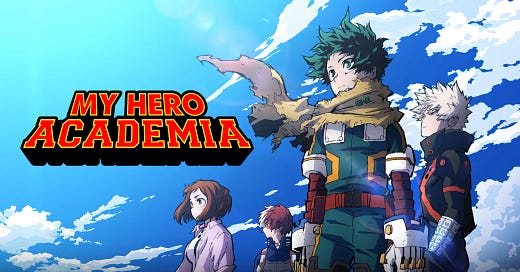



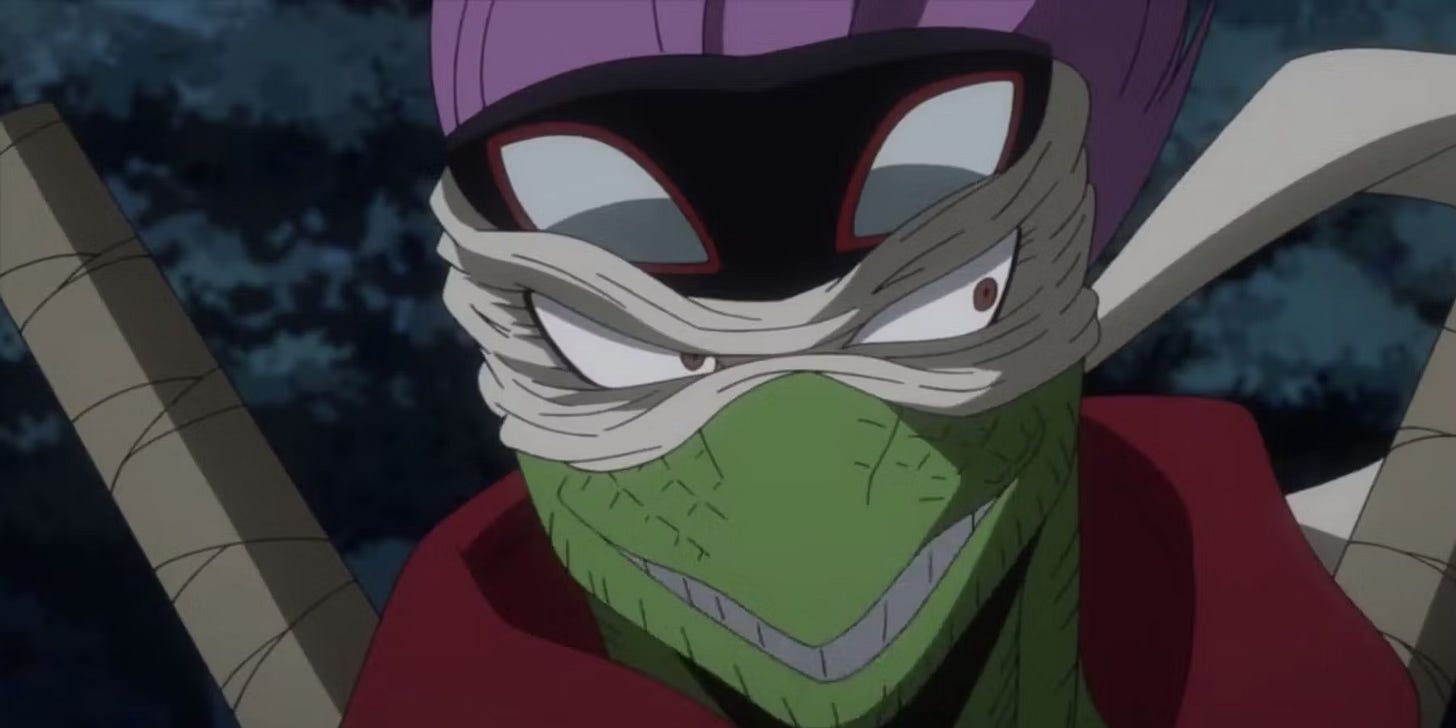
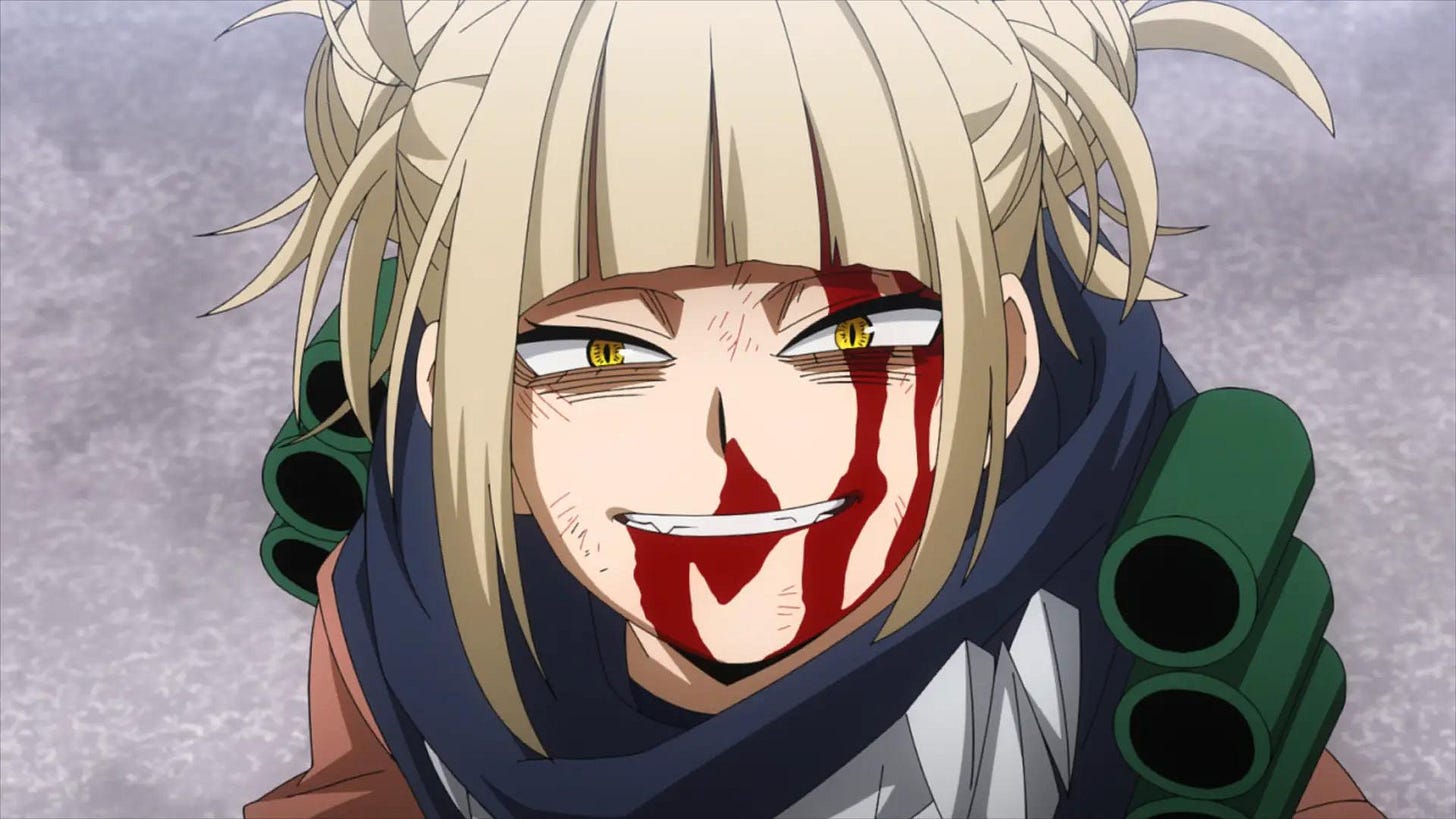
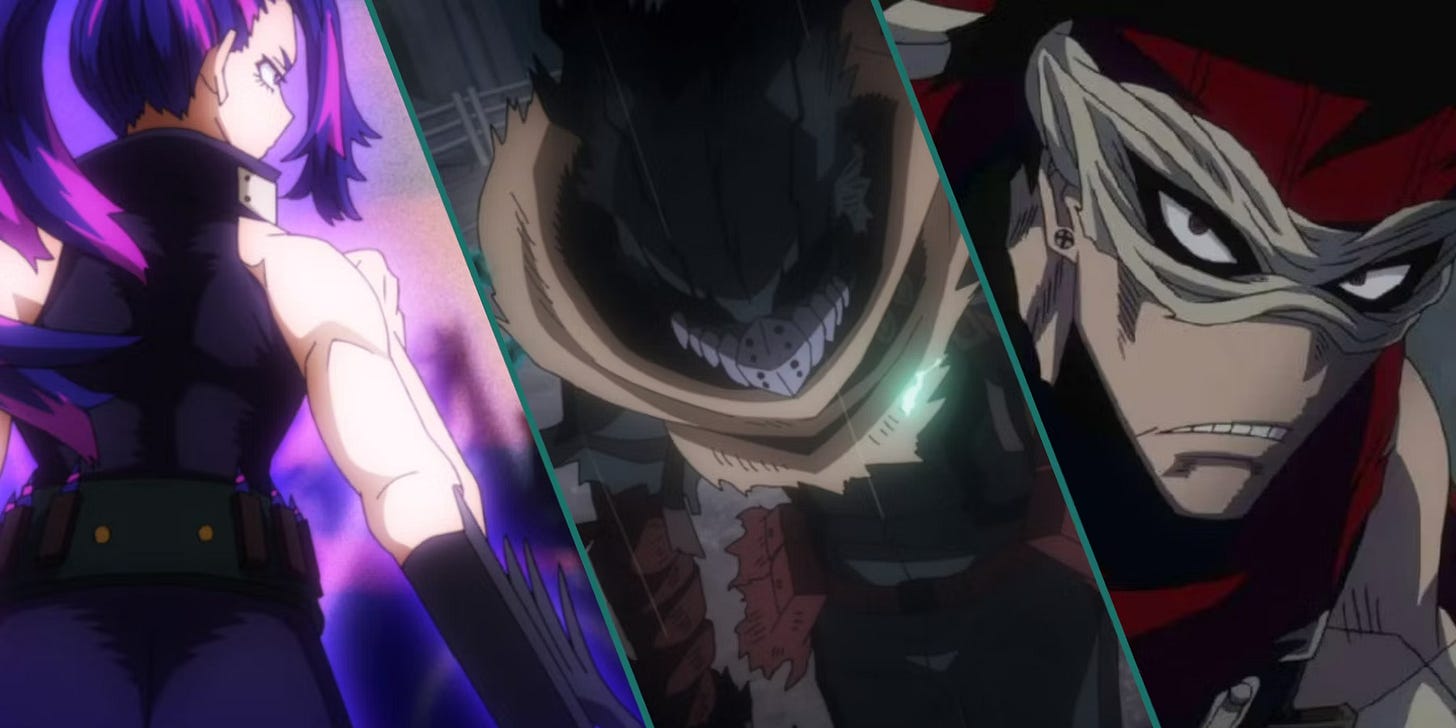
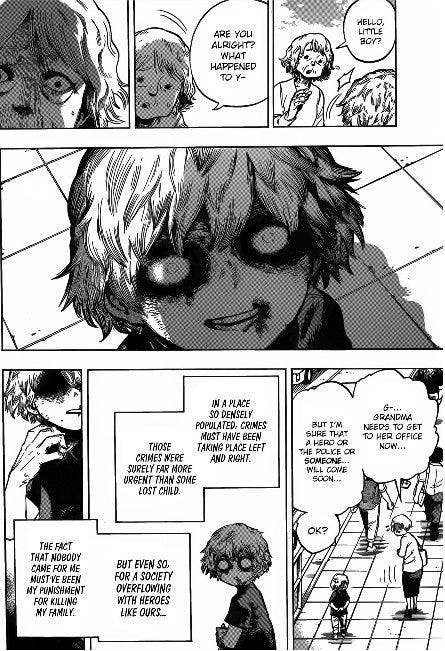
Great read! I’m very similar in how I think of MHA, it’s not a favorite, but I still really admire it, and it’s just as you say, most of that is from how well they dig into the nuances of a superhero society. While it’s obviously completely different than The Boys, I think they both do this, providing an honest depiction of how superheroes would actually affect the world.
Thanks! Glad you enjoyed it.